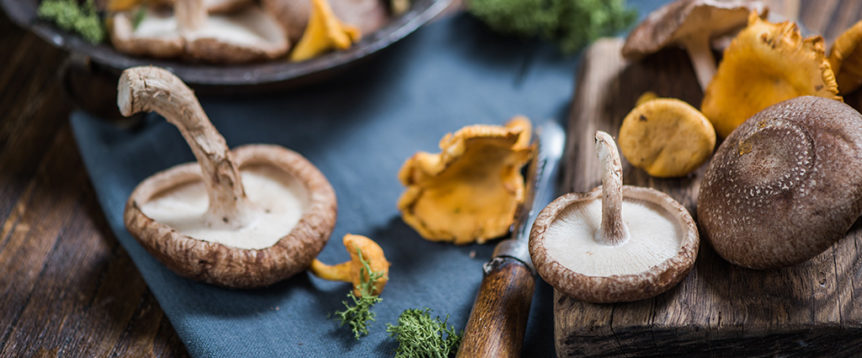Mushrooms come in hundreds of varieties, ranging from deadly poisons to anti-cancer powerhouses. “Medicinal mushrooms” are used as supplements to address various health conditions.
› What are they?
Mushrooms are fungi that come in many shapes, sizes and tastes and are eaten as vegetables around the world. Mushrooms can have dramatic effects on the body: Some are toxic, some cause hallucinogenic experiences—and some contain compounds that can inhibit tumor cell growth, reverse harmful DNA transcription, lower cholesterol or boost immunity.
› Health benefits
Mushrooms are considered a functional food, meaning that they have health benefits beyond their nutritional value. Medicinal mushrooms have been widely used for centuries, and many also have modern research to back up traditional health claims.
Inflammation
Many types of mushrooms contain powerful antioxidants that decrease inflammation in the body, which may be helpful in treating and preventing illnesses, including cancer and autoimmune disorders. Some of the top mushroom sources of antioxidants are the black poplar, jelly, golden needle, reishi, lion’s mane and portobello varieties.
Immune support
Lentinan, found in shiitake mushrooms, is known to boost the immune system’s protection from pathogens. Many other mushroom varieties, including the common button mushroom, also contain beta-glucans, which enhance immune function. Research into the immunity-boosting effects of lion’s mane is also promising.
Mood and focus
Several types of mushrooms have been shown to ease anxiety and improve brain function. One of the stars in this area is lion’s mane, which has been shown in studies to reduce symptoms of memory loss, protect against dementia and Alzheimer’s disease, and relieve depression and anxiety. Reishi supplements have been shown to reduce fatigue, anxiety and depression, and cordyceps extracts have adaptogenic properties, meaning that they increase nervous system adaptability.
Additionally, hallucinogenic types of mushrooms containing psilocybin have been shown in studies to benefit people with major depressive disorder, but psilocybin is illegal in most of the United States.
Cancer
Several varieties of mushrooms are cancer-fighters. One study of maitake, crimini, portobello, oyster, and white button mushrooms found that consumption by study participants was effective at suppressing the growth of cancer cells. Other studies have linked shiitake mushrooms to better survival of cancer patients undergoing chemotherapy, likely because they contain the compound lentinan.
Heart health
Studies have shown that some types of mushrooms, including the statin-containing pink oyster, can reduce LDL cholesterol. Shiitakes help the liver process cholesterol, preventing arterial plaque build-up, and also contain cholesterol-lowering eritadenine, sterols and beta-glucans.
› How much do I need?
The appropriate doses of medicinal mushrooms depend on your age, health, the type of mushroom and other factors. Follow directions on labels, and check with a health care professional for recommended doses to treat a medical condition. Be aware that if you’re using mushrooms in their concentrated, powdered form, it might be possible to get too much. For example, powdered reishi mushrooms have been known to have toxic effects on the liver if taken for more than one month.
› In food
You may be able to find several varieties of mushrooms in the grocery store that have helpful properties. For example, oyster and shiitake mushrooms are good for heart health and lowering cholesterol; portobellos are loaded with antioxidants; and chanterelles have been used to treat infections and heal wounds.
› Dietary supplements
A wide variety of mushroom supplements are available. These usually harness mushrooms’ functional properties in a concentrated, dried form—such as capsules, powders, extracts and drink mix-ins.
Please consult your health care provider before making changes to your vitamin/supplement regimen.


